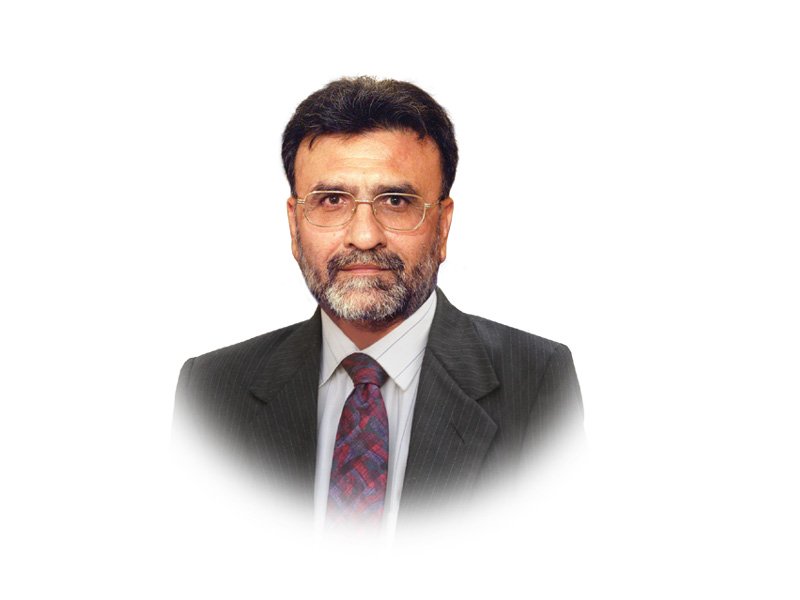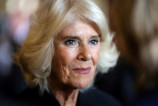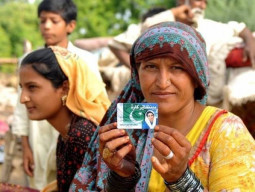
For more than two hours, I remained glued to my seat in the press gallery and keenly listened to speeches delivered by a large number of legislators. Most of them preferred discussing the proposed budget only and delivered cliché-laden speeches. Most pathetic and frightening was their absolute indifference to perennial incidents of terrorism in Pakistan.
Maulana Sheerani of the JUI-F was particularly disappointing. He is an experienced political worker from Balochistan. Most of his fellow-Maulanas from his province blame him for being ‘soft’, when it comes to asserting a distinctive sectarian identity by various Deobandi outfits. Some even go to the extent of suspecting him as an “Iranian asset planted in” an exclusively Sunni party of the religious-right. Sheerani knows everything regarding the origin and spread of the dreadful Lashkar-e-Jhangvi in Quetta and its suburbs. Instead of educating us on this count, the focus of his anxiety remained fixed to condemn the interest-based economy of a country established in the name of Islam.
From the JUI-F benches, the surprisingly pleasant speech came from Akram Durrani. He had been the K-P Chief Minister during the MMA-government from 2002 to 2007. His accumulated experience fully reflected itself when he began elaborating the economic potential of his province by specifically discussing the untapped reservoirs of energy found in vast swaths of land from Kohat to Bannu.
Amir Haider Hoti, his successor from the ANP, was doubly impressive in the same context. He also proved an exception by passionately discussing the issue of terrorism. Very cunningly, he did attempt setting the economic agenda for the PTI-government in his province by pointing out issues related to energy and water management. The K-P, he stressed with a hurt heart, produces huge megawatts of electricity through multiple but hydro-based sources. Yet, the federal government maintains a punitive regime of load shedding for this province and WAPDA is not willing to pay a penny more than the amount fixed way back in 1991 as royalty for electricity production. Appropriate funds were also not provided for completing a water-lifting canal at Chashma that can develop at least 300,000 acres of additional agricultural land in poverty-stricken southern belt of K-P.
Except these two former chief ministers, none of the legislators seemed to have done any homework to discuss the first budget of third Nawaz government in an engaging manner. Also-ran type speeches were horribly drab. Ayaz Soomro of the PPP attempted to first explain and then take on the presumably capitalist-friendly policies of the PML-N, but miserably failed to spice his story with hard but embarrassing facts.
The ruling-party legislators were equally clueless in defending their budget. Off the record, most of them candidly admit to journalists that Ishaq Dar hopelessly failed to inject any energy and to provide feel-good content to budgetary proposals that the sterile minds of hardened bureaucrats had prepared for him.
At least three of the PML-N legislators separately told me that their government had miserably failed to convey an energizing message through its first budget. Its main priority does not appear aimed at generating hyperactivity on the economic front. Instead, the focus seemed to have moved on revenue collection for a near-bankrupt state.
More than a score of senior bankers, they told me, have clearly conveyed to the prime minister that empowering “the corrupt FBR babus” to get arbitrary and at random details of any citizen’s bank account might lead to crashing of a visibly thriving sector, banking, in Pakistan. They sounded very confident in predicting that while winding up the general discussion on budgetary proposals, Dar would have no choice but to announce the withdrawal of such powers to ensure prevention of a mad rush on banks.
The finance minister has already succumbed in case of the salary increase for government servants. Shahbaz Sharif, my sources claimed, pressed for instant announcement of some relief in this respect and Dar had to announce ten per cent increase for government servants without waiting for recommendations from the 3-member committee he had established for this purpose. Too early in the formative days of this government, therefore, we can easily discern surfacing of two competing camps. The heartlessly bureaucratic one appears to be led by Dar, while Shahbaz Sharif continues to intrude in issues of fiscal management by the federal government with agitated mind of a budding populist.
Published in The Express Tribune, June 17th, 2013.
COMMENTS (2)
Comments are moderated and generally will be posted if they are on-topic and not abusive.
For more information, please see our Comments FAQ
1731494851-0/BeFunky-collage-(51)1731494851-0-405x300.webp)





1731487683-0/Copy-of-Untitled-(35)1731487683-0-270x192.webp)
1731489300-0/Copy-of-Untitled-(36)1731489300-0-270x192.webp)









So much despondency so soon after PMLN are elected? Wish people had recognised PMLN true colours before the elections. Anyway, we have elected our leaders for the next 5 years. Now its time to bear whatever decisions our esteemed leaders make.
Good reporting, thanks. Shows integrity of MNAs when it comes to policy prescriptions. The fact that none had done any homework for a healthy debate shows that we don't need a Parliament at all. No one's brain, more so heart, is in their job in helping the people of this country. It is becoming a failed State on account of the last PPP Govt and now this new equally dysfunctional Parliament. Something has to give. We can't drift aimlessly.